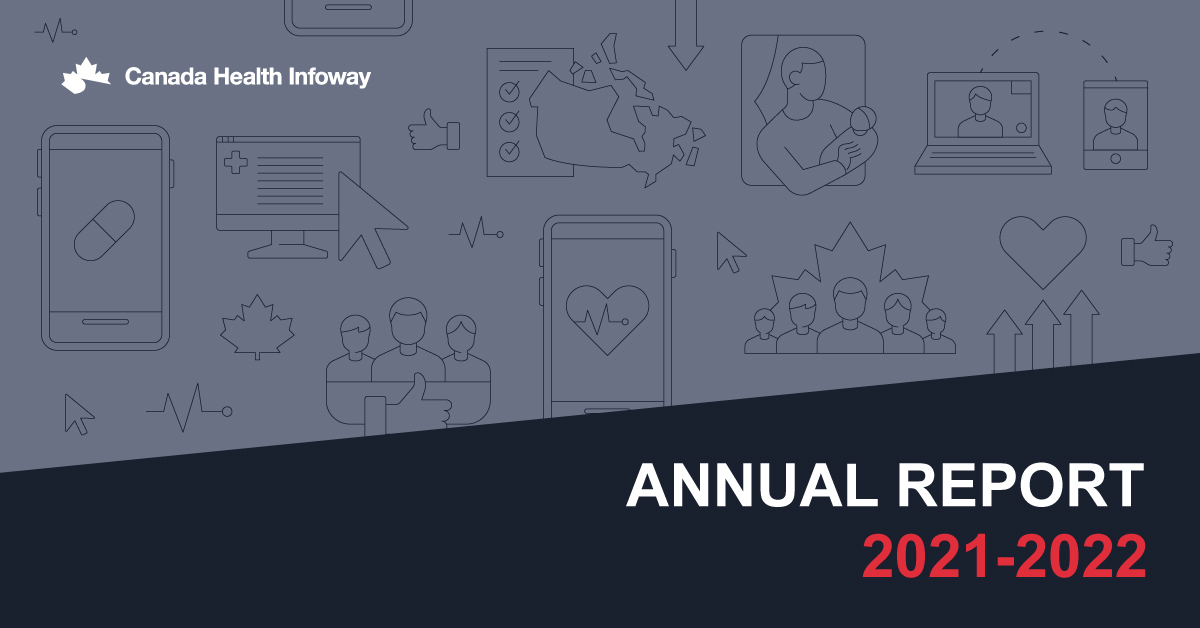Held every year on April 7, World Health Day is a great opportunity to reflect on public health successes that have improved quality of life during the last seven decades. It’s also an opportunity to motivate action to tackle the health challenges of today — and tomorrow.
My mind turns to technology as a key driver of change. It has impacted every aspect of our lives over the last seven decades, from the way we work and learn, to the way we shop and play. While the pace of change may be somewhat slower in health care, technology has been no less transformative in this field.
At Canada Health Infoway, we’ve had a front row seat to much of the digital health innovation that has transpired over the last twenty years — and what a show it’s been! Since 2001, an estimated $50 billion in benefits have been realized from Infoway’s investments in digital health initiatives alone. These benefits have manifested in better quality of care, improved access to care and a more efficient health system for Canadians.
Of course, the global pandemic accelerated the adoption of virtual care when most face-to-face encounters were too risky, especially for those who were frequent users of the health system. Thanks to decades-long work by provinces, territories and industry to build a digital health infrastructure including large lab and drug information systems, diagnostic imaging repositories, telehealth solutions and other digital health tools, the transition to virtual care was realized that much more quickly and effectively.
Indeed, between January 2021 and March 2022, 33 per cent of patient-reported visits were virtual. Not only did patients maintain access to the health system, but they also collectively saved 89 million hours in travel time. This translates to 1.2 billion kilometres in travel, more than $5.9 billion in avoided expenses and 330,000 metric tonnes in reduced CO2 emissions. Good for human health and the health of our planet!
However, the pandemic also underscored some of the health challenges that are referenced in the WHO anniversary statement. Health equity is the first that comes to mind. Inequitable access to information, vaccines and health services was especially glaring as the world managed an unprecedented health challenge. Those in rural/remote, underserved and underrepresented communities need to be involved in the creation of solutions that improve their health experiences and outcomes, rather than exacerbating existing gaps and barriers.
For example, the seamless flow of health information in a connected health system will allow clinicians to provide optimal care by enabling standardized data to follow the patient throughout their care journey. When patients have access to their health information, they’re able to be more informed and better manage their health, leading to better patient experience, a more efficient health system and better health outcomes.
This goal of connected care — or interoperability — is a global challenge requiring global cooperation. In the same way the founding members of the WHO came together in 1945 to address global health challenges, the Global Digital Health Partnership (GDHP) was established by a group of countries, including Canada, in 2018. The group identified five global digital health challenges that required international collaboration and attention, including:
- Interoperability
- Cybersecurity
- Policy Environments
- Clinical and Consumer Engagement
- Evidence and Evaluation.
As Chair of the Clinical and Consumer Engagement work stream, I can attest to the merits of working collaboratively with partners around the globe to think about how we can best pool our expertise and depth of experience to improve the lives of the citizens that we serve.
This international collaboration has also spurred work at home. Building on learning from our international colleagues and in consultation with key stakeholders across Canada, Infoway has recently developed a Shared Pan-Canadian Interoperability Roadmap that articulates our vision for a connected health system, the priority areas of focus and the building blocks to realize the work ahead.
I truly believe that this is an exciting time for Canada. The successes we have realized over the past decades have laid a strong foundation and prepared us well to address the challenges that persist today. This is especially true when we can benefit from broad collaboration through organizations like the GDHP and WHO. After all, we can always use a little help from our friends.
So, on this World Health Day, I wish the WHO a happy 75th anniversary, the GDHP a happy 5th anniversary, and a better health future — for all, by all.
Have a comment about this post? We’d love to hear from you.


